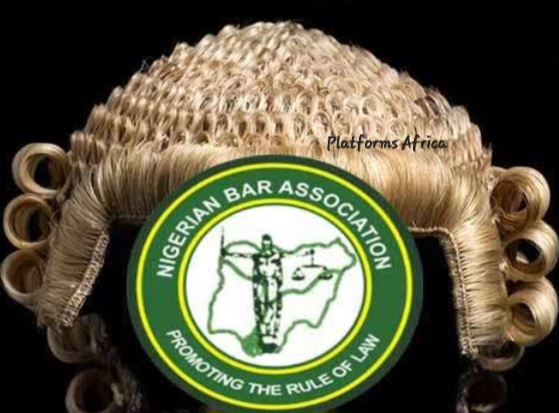The question of if Muslims intending to offer Eid Sacrifice can shave their hair or clip their nails on any of the first ten days of Dhul Hijjah has been asked severally by many people. Nurudeen Ibrahim provides the answer that may be surprising to many
PERMISSIBILITY OF SHAVING THE HAIR AND CLIPPING THE NAILS DURING THE FIRST 10 DAYS OF DHUL HIJJAH FOR ANYONE WHO INTENDS TO OFFER THE EID SACRIFICE
By Nurudeen Ibrahim
The first ten days of Dhul Hijjah begins from the Night the New Crescent is sighted to end Dhul Qadah and kickstart Dhul Hijjah. It is also the days of Hajj when the pilgrims are occupied with Hajj rites and activities.
The question of if Muslims intending to offer Eid Sacrifice can shave their hair or clip their nails on any of the first ten days of Dhul Hijjah has been asked severally by many people.
There is widespread opinion that it is prohibited for anyone who intends to offer Eid Sacrifice to shave the hair or clip the nails on him once the month of Dhul Hijjah starts until the tenth day after the sacrifice.
It is important to revisit this matter from every point of knowledge inclusive of the Maqasid to see how established this prohibition is or not from the point of view of the Shariah.
Aside from the fact that there is no evidence to establish this prohibition as far as the Quran is concerned, it is important to state that there is no substantial proof for the prohibition of shaving the hair and clipping the nails on any of the first ten Days of Dhul Hijjah aside from what was narrated by Umm Salamah and documented in Sahih Muslim. This narration is said to have been narrated by only one person Umm Salamah and no one else which further weakens its authenticity.
According to Umm Salamah: the Messenger of Allah (pbuh) said: “When the crescent of Dhul Hijjah appears anyone who intends to make a sacrifice to slaughter should not shave his hair and should not clip his nails until after the sacrifice.”
Aisha (r.a.) frowns at this narration of Umm Salamah on the basis that the Messenger of Allah (pbuh) has only said this in relation to those performing Hajj and have put up their Ihram clothes.
It is important to mention that the Holy Prophet Muhammad (pbuh) stated in Medina for 10 years offering sacrificial animals for himself and his household and this prohibition was not known.
Also, for an annual tradition like this since the time of the Holy Prophet Muhammad and it is so much known today by many Muslims for the view of its prohibition, it would be wrong or improper for it to have been reported by just one person Umm Salamah while no other companion has narrated anything similar. This single narration cannot be substantial enough to render a practice prohibited.
Based on all these including, the founders of the schools of thought maintain three positions:
1. Imam Abu Hanifa considers it permissible to shave the hair and clip the nails without being prohibited or disliked.
2. Imam Malik and Imam Shafi’iy consider it as slightly disliked (makruh tanzeeh).
3. Imam Ahmad Ibn Hanbal considers it prohibited based on the narration of Umm Salamah.
According to the report given in Al-Mughni, any man or woman who shaves his hair and clips his nails during this period and went on to sacrifice an offering for Eid, such sacrifice is valid without any dispute or contradiction according to majority of scholars.
Al-Allamah Sheikh Abdullah bn Zaid Aal Muhammad (r.h.m) stated that the most correct position on this matter is that there is neither prohibition nor dislike in it. Thus, it is absolutely permissible to shave the hair and clip the nails during the first 10 days of Dhul Hijjah.
The popular notion or opinion that says such practice is prohibited is just the popular saying of those in the public which is spread among the people but the correct position as far as the matter is concerned is that it is permissible to shave the hair and clip the nails during the first 10 Days of Dhul Hijjah except for those performing the Holy Pilgrimage and are in the state of consecration (Ihram).
The word prohibition for an act like this is too strong. From the definition of prohibition in the usuul, it means an act that if you do it, you will be punished or liable to punishment but if you avoid it, you will be rewarded. Another definition in fiqh is that a prohibited act if done can render your deed invalid.
Thus, Allah cannot punish anyone for shaving or clipping the nails which are even acts that are recommended by the Prophet on Fridays. It only concerns those pilgrims who are in the state of consecration and there other acts also that they must avoid when in this state. I’m addition, there are so many people who would not know if they could afford the sacrificial animal until a day to Eid or even the day of Eid.
The problem in this matter is that people spreading this opinion have not met scholars that will explain better to them. Telling people not to shave or clip their nails when they are not pilgrims which is obviously a way that may be inflicting hardship or discomfort upon them when we need to facilitate ease and eliminate hardship as far as the maqasid is concerned will not be proper.
To make justice to this matter, it should be left as a matter of choice. Whoever that chooses not to shave or clip his nails in order to emulate pilgrims should do so while those who choose to shave their hairs and clip their nails because they are not bound by the rules of being in state of consecration should be allowed. Thus, it is not prohibited to shave the hairs or clip the nails for those intending to offer the sacrificial animals during the first Ten Days of Dhul Hijjah.
Allah knows Best!!!





